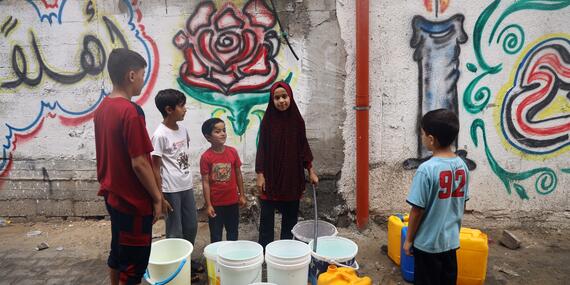Today's top news: Occupied Palestinian Territory, Nepal

Occupied Palestinian Territory
OCHA reported that yesterday, 50 trucks carrying food, medicine, health supplies, bottled water and hygiene products crossed from Egypt into Gaza. This brings the number of trucks that have entered Gaza since 21 October to 526. The entry of fuel remains banned by Israeli authorities.
The Government of Egypt has consented to the deployment of a UN technical humanitarian team to provide advice to the Egyptian Red Crescent Society on the delivery of aid to Gaza. The UN team will be based in Al Arish.
The Kerem Shalom crossing with Israel, which was the main entry point for goods prior to the hostilities, remains closed, as does the Israeli pedestrian crossing of Erez.
Overcrowding in UN facilities in Gaza remains a major concern. In the Khan Younis Training Centre, where 22,000 displaced people sought shelter, the space per person is less than 2 m2 and there is one toilet for every 600 people.
In the West Bank, OCHA reported that since 7 October, 147 Palestinians have been killed, including 44 children, by Israeli forces. Eight others, including one child, have been killed by settlers.
Displacement continues in the West Bank, with more than 900 people displaced since 7 October amid settler violence or access restrictions.
On Thursday, the Under-Secretary-General for Humanitarian Affairs, Martin Griffiths, will represent the UN Secretary-General, António Guterres, at an international humanitarian conference on Gaza. This meeting is hosted by French President Emmanuel Macron and takes place in Paris.
Nepal
OCHA reported that four days after the earthquake in Nepal, the most urgent priorities are shelter, water and sanitation, and food aid.
Jarakot and Rukum districts, the most affected districts in the country’s west, are among the most impoverished in Nepal. Many people displaced by the earthquake are sleeping outside or living in makeshift shelters in freezing overnight temperatures.
The UN continues to support the Government-led response by providing shelter, food and medical supplies.
